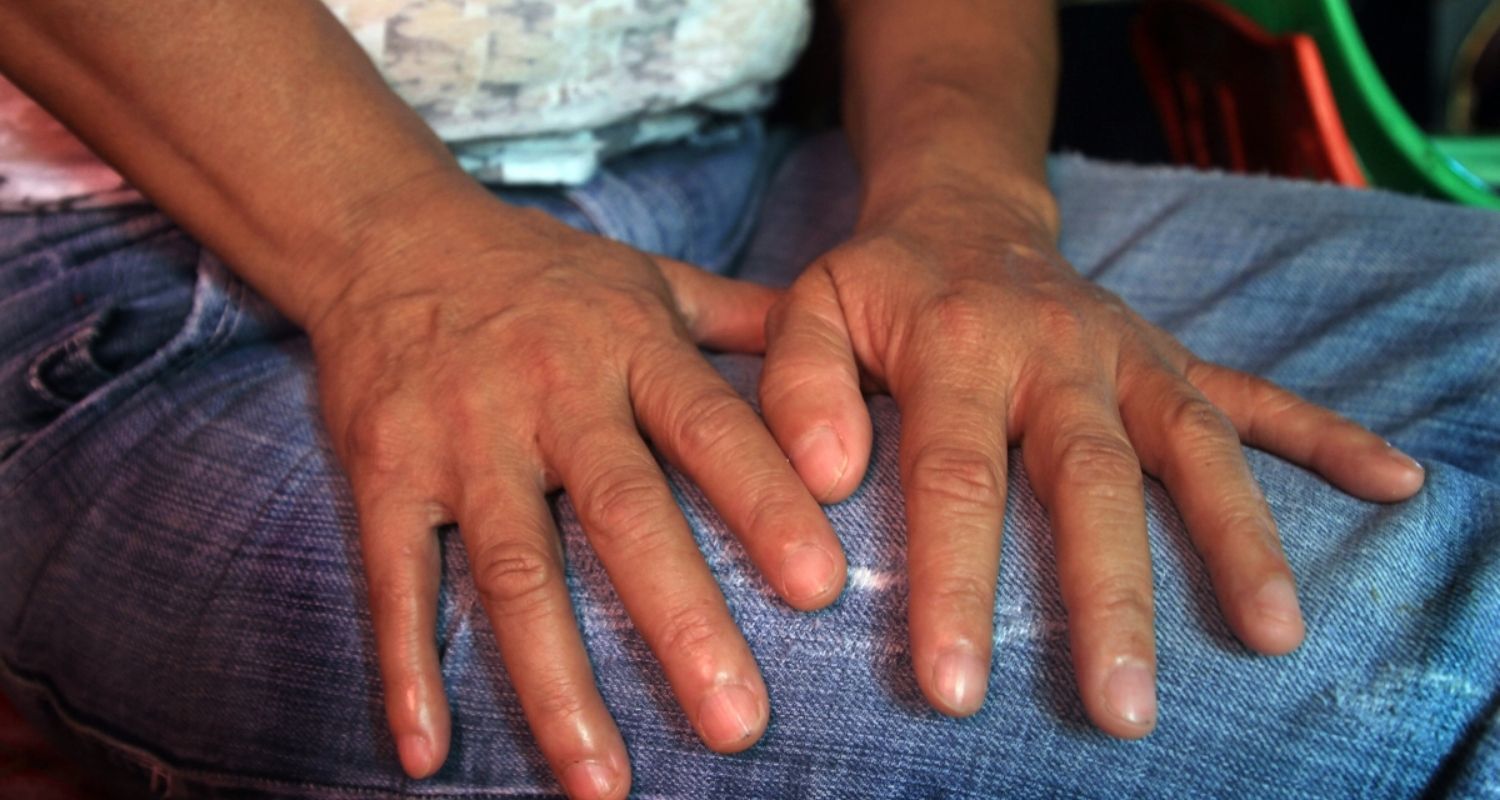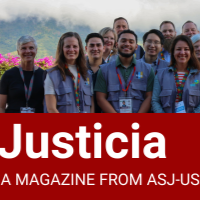Rosa* (name changed) is a bright, cheerful Honduran woman whose smooth face makes it difficult to believe she has great-grandchildren. She’s lived nearly her whole life in Rivera Hernández, a sprawling community of 400,000 people that is one of the most violent regions of Honduras.
“Where I live, it rains bullets, and the police don’t do anything about it,” she says, “The police only come after someone has died. They don’t come during the shoot-out.”
Despite the violence in her neighborhood, Rosa worked hard to carve out a happy space for her family. Against the odds, she raised three sons and two daughters to resist the influence of the five different gangs whose territories crisscrossed through their neighborhood, and ensured they all finished at least primary education.
Rosa’s life changed forever when a young man running from two gang members ran in through her family’s open front door to hide. One of the gang members followed him in, but in confusion, shot at Rosa’s husband while the young man escaped. “Idiot, you got the wrong guy!” the second man called out, but it was too late. Her husband had already been shot eight times.
Rosa was paralyzed. Though she’d managed to hide herself in the next room, she could clearly identify the young men responsible. “I didn’t know whether to cry or to shout or what to do,” she said, “I was so afraid.”
Eventually, police arrived, but only to take Rosa’s husband to the hospital. She rode along with him, gripping his hand as he breathed his last few breaths. They had barely arrived at the hospital when she felt his grip loosen.
Rosa begged the police officers for help, but they said there was not much they could do. “We’ll introduce you to someone,” they promised her, and soon she was sitting across a table dubiously from a gentle-eyed man who promised that he wanted to help her, without asking for anything in exchange. He worked for a Christian organization called ASJ (formerly known as AJS), he told her. He wanted to help her heal and to achieve justice in her case.
“I need to move to a different house,” she told him. She was afraid that her husband’s killers had seen her or her granddaughter, who were both in the house at the time of the murder. “They said they’d help me, and I believed it and didn’t believe it at the same time.
Mostly, I was just afraid.”
But sure enough, the gentle-eyed man, Mateo*, showed up the next day to help her box up her possessions. She felt much calmer in her new house, which was in the same neighborhood, but away from the crossfire of the warring gangs.
Encouraged by Mateo’s kindness, Rosa began attending the therapy sessions he recommended to help her manage her grief and shock. At first, she couldn’t hear a gunshot without becoming paralyzed and locking down her house. “It’s not like my mind shuts down, but there’s sort of a mental block,” she said, “I can’t go out into the street.”
Rosa’s visits with the psychologist helped her process her fear rationally, and feel more in control of her own life. “I have recovered excellently in these two years,” she now says confidently.
For months, ASJ staff checked in regularly with Rosa, and “were always very, very, very excellent with me,” she says. They told her that thanks to the information she had shared, they had tracked down one of the young men responsible, and helped the police make an arrest. If she was willing, they said, her testimony could help put him in jail. Though she was scared, she trusted ASJ to protect her, and said that she would do it.
“They took me to the courts every time,” she said, remembering elaborate alibis they cooked up together so that no one else in her community would become suspicious that she might be collaborating on a case.
Rosa is confident that she never would have given this testimony if she didn’t have the support of ASJ. “I would be too afraid to give any of this information to the police. If someone sees me talking to the police, they would kill me!”
In May, 2018, two years after Rosa’s husband was murdered, the gunman was sentenced to 30 years in prison.
Rosa is still in touch with Mateo, her psychologist, and the entire staff of ASJ. She’s joined their network of community informants. “When I see something that’s not right, I tell them what’s going on, so that they can come in. If I see someone committing a crime, or know about a murder. I tell them exactly where it happened,” she says, “It’s not fair for someone else to go for what I went through.”
“If everyone would just agree to let ASJ help them, it would be so good,” she said. “They moved me to another house, they’ve given me food to eat, and they’ve helped me a lot through the psychologist. I wish more people would give them the opportunity to help. They’ve helped me in many things that I didn’t even ask for.”
ASJ’s violence prevention programs helps dozens of people like Rosa every year, and they have been so effective, experts estimate they reduce violence to the point of saving six lives per month. For more about the program that helped Rosa, and how ASJ is responding to violence in Honduras, click here.

















